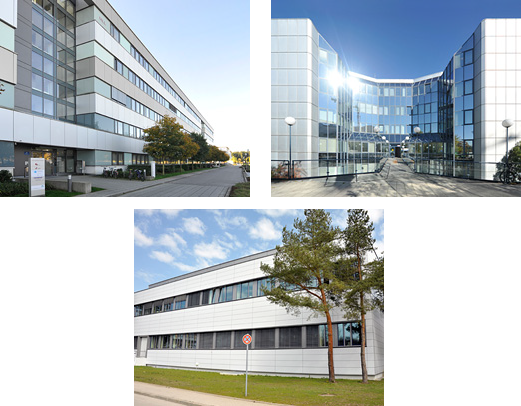Helmholtz Zentrum München

Helmholtz Zentrum München is the German Research Center for Environmental Health. It studies the pathogenesis of major common diseases, placing special emphasis on diabetes mellitus, lung diseases and allergy. The focus of research is on the interaction between environmental and lifestyle factors and individual genetic makeup during disease development. Through this research to uncover the mechanisms underlying disease, the Center also contributes significantly to a better understanding of other common diseases such as immunological and neuropsychiatric diseases as well as cancer.
With its excellent basic research programs and top-level scientific and technical infrastructure, the Center develops innovative approaches to personalized diagnostics, therapy and prevention.
The collaboration with outstanding partners in hospitals, research institutions and industry enables the bidirectional translation of new insights from basic research to clinical practice and from clinical observations back to the research laboratory. Through translational research centers, clinical cooperation groups and collaborations with industry, advances in knowledge bring about rapid benefits to society. The goal is to develop an approach to medicine that addresses the cause of disease and provides personalized options for prevention, diagnosis and treatment.
The research results of Helmholtz Zentrum München with its 2300 coworkers, including 500 graduate students, are published and cited in renowned international journals. Center scientists attain top rankings in their specialty areas and are awarded prestigious scientific and clinical research prizes. The head office is located in Neuherberg to the north of Munich on a 50-hectare research campus.
Helmholtz Zentrum München belongs to the Helmholtz Association, Germany’s largest research organization, a community of 18 scientific-technical and medical-biological research centers with a total of 38.000 staff members.

